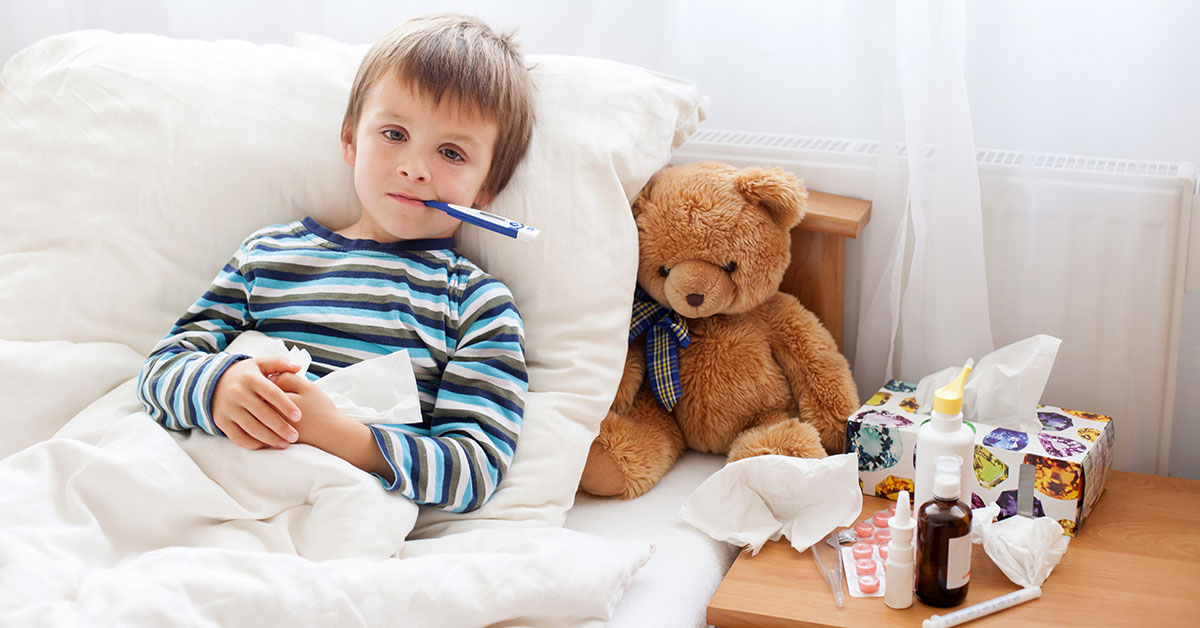Guiding Teens Through Body Image Struggles
Guiding teen body image struggles involves understanding societal pressures and promoting self-acceptance. Encourage positive self-talk and embrace diverse beauty standards to boost confidence. Promote healthy habits like exercise and nutrition for overall well-being. Set realistic expectations and emphasize personal growth over perfection. Keep communication open and seek professional help when needed. Remember, fostering a positive self-image in teens requires empathy and guidance in today’s complex world.
Key Takeaways
- Cultivate positive self-talk and self-acceptance.
- Encourage diverse beauty standards and body positivity.
- Promote healthy habits and holistic well-being.
- Support open communication and seek professional help when needed.
- Focus on building self-confidence and resilience.
Understanding Teen Body Image

Understanding the complexities of teen body image can be challenging, as it often involves a blend of societal pressures and personal perceptions. Peer support plays a significant role in shaping how teenagers view their bodies. Friends can either positively reinforce healthy body image or inadvertently contribute to negative self-perceptions. Encouraging positive friendships and fostering a supportive peer group can aid in promoting a healthier body image among teens.
Parental involvement is another vital factor in addressing teen body image issues. Parents serve as important role models and influencers in their children’s lives. By promoting a healthy relationship with their bodies and openly discussing body image topics, parents can help teenagers develop a more positive self-image. Additionally, parents can support their teens by listening attentively, offering reassurance, and providing guidance when needed.
Both peer support and parental involvement are essential pillars in assisting teenagers in developing a healthy body image. By fostering positive relationships and open communication, teens can feel supported and empowered to navigate the complexities of body image in today’s society.
Media Literacy Education

When guiding teens through body image struggles, it’s essential to introduce them to media literacy education. This involves teaching them to analyze media messages critically and promoting a mindset of questioning what they see.
Analyzing Media Messages
Consider how media messages impact your perception of body image and develop critical thinking skills to navigate through them effectively.
In today’s digital age, media plays a significant role in shaping how we view ourselves and others. The constant bombardment of idealized body types can lead to feelings of inadequacy and pressure to conform to unrealistic beauty standards. This phenomenon often triggers social comparison, where individuals compare themselves to what they see in the media, fostering negative self-perceptions.
To combat these influences, it’s essential to cultivate a sense of body positivity and practice media literacy. Start by questioning the messages portrayed in advertisements, TV shows, and social media. Recognize that many images are heavily edited and don’t reflect reality.
By analyzing media messages critically, you can begin to decipher what’s authentic and what’s fabricated. Remember, your worth isn’t determined by how closely you resemble media portrayals. Embrace your unique qualities and celebrate diversity in body shapes and sizes.
Promoting Critical Thinking
Enhance your ability to discern and analyze media messages by engaging in media literacy education. Critical thinking plays an essential role in maneuvering through the complex landscape of media influences. By honing your critical thinking skills, you can effectively evaluate the messages portrayed in various forms of media.
Encouraging self-reflection is pivotal to developing a discerning eye when consuming media.
Through media literacy education, you can learn to question and challenge the information presented to you. By critically analyzing media content, you empower yourself to make informed decisions about what to believe or dismiss.
Self-reflection allows you to ponder how media messages may impact your thoughts, beliefs, and behaviors.
Promoting critical thinking through media literacy education equips you with the tools necessary to decipher between authentic and misleading information. By engaging in self-reflection and questioning media messages, you cultivate a more discerning mindset that’s vital in today’s media-saturated world.
Encouraging Positive Self-Talk

When guiding teens through body image struggles, it’s important to encourage positive self-talk. Affirming inner beauty helps combat negative self-perceptions, challenging those harmful thoughts.
Cultivating self-compassion is key in fostering a healthy relationship with oneself.
Affirming Inner Beauty
Embrace your unique qualities and celebrate the beauty that radiates from within by practicing positive self-talk daily. Affirming your inner beauty is a powerful way to boost your self-esteem and cultivate a positive body image.
Engage in self-care practices that make you feel good, such as exercise, meditation, or spending time in nature. These activities can help you connect with your inner self and appreciate the beauty that lies within you.
Another great way to affirm your inner beauty is through self-expression, especially through art. Whether it’s painting, writing, dancing, or any other form of creative outlet, expressing yourself can help you see the uniqueness and beauty in your thoughts and emotions.
Challenging Negative Thoughts
Fostering positive self-talk is key to combating negative thoughts and nurturing a healthy body image. When faced with self-critical or judgmental inner dialogues, it’s important to engage in cognitive reframing. This technique involves challenging and changing negative beliefs about yourself. Start by identifying the negative thought, then actively replace it with a more positive and realistic one.
For instance, if you catch yourself thinking, ‘I’m not good enough,’ reframe it to ‘I am capable and deserving.’
Incorporating positive affirmations into your daily routine can also be beneficial. Repeat phrases like ‘I am beautiful just the way I am’ or ‘I am more than my appearance’ to boost self-esteem and counteract negative self-talk.
Additionally, practicing mindfulness and self-compassion techniques can help you become more aware of your thoughts and feelings without judgment, fostering a kinder relationship with yourself. Remember, your inner dialogue shapes your self-perception, so be intentional about cultivating positivity and self-compassion.
Cultivating Self-Compassion
To foster a kinder relationship with yourself and encourage positive self-talk, consider cultivating self-compassion as a foundational practice in nurturing a healthy body image.
Practicing mindfulness can help you become more aware of your thoughts and feelings without judgment, allowing you to respond to yourself with kindness. By developing resilience, you can bounce back from setbacks and challenges, viewing them as opportunities for growth rather than reasons for self-criticism.
Fostering empathy towards yourself involves treating yourself with the same compassion you’d offer a friend facing a similar situation. This shift in perspective can lead to a more accepting and nurturing relationship with your body.
Promoting acceptance of your imperfections and embracing your unique qualities can help you develop a more positive self-image.
Promoting Healthy Habits

Encouraging consistent physical activity and nourishing food choices is key to promoting healthy habits among teenagers struggling with body image issues. Providing nutrition education can help them make informed decisions about what they eat, supporting their overall well-being.
Suggesting exercise routines that they enjoy can make staying active feel less like a chore and more like a fun part of their day.
By promoting a healthy lifestyle that includes balanced meals and regular physical activity, teens can develop a positive relationship with their bodies. Emphasizing body acceptance and focusing on feeling strong and energized rather than achieving a certain appearance can shift their mindset towards a more holistic view of health.
Encourage them to listen to their bodies, eat when hungry, and move in ways that bring them joy.
Setting Realistic Expectations
Helping teens set realistic expectations regarding their body image can support them in developing a healthy and balanced perspective on their physical appearance. When it comes to body image, it’s important to establish healthy boundaries. Encourage teens to set realistic goals that focus on overall well-being rather than strict appearance standards. By doing so, they can work towards self-acceptance and understanding that beauty comes in various shapes and sizes.
Community support plays a significant role in helping teens navigate body image struggles. Encourage them to surround themselves with positive influences that promote self-love and acceptance. Remind them that it’s okay to have imperfections and that true beauty lies in embracing who they are.
As teens aim for self-acceptance, remind them that perfection is unrealistic. Encourage them to celebrate their uniqueness and focus on what makes them feel confident and happy.
Embracing Diverse Beauty Standards
Managing body image struggles involves recognizing and appreciating the beauty found in diverse standards and embracing the uniqueness of individual appearances.
In a world where beauty ideals are often narrowly defined, it’s essential to celebrate uniqueness and embrace diversity. Every individual possesses a distinct combination of features, qualities, and characteristics that make them special and beautiful in their own way.
By embracing diverse beauty standards, you empower yourself and others to break free from unrealistic expectations and embrace authenticity.
Beauty comes in all shapes, sizes, colors, and forms. It’s about accepting and loving yourself for who you’re rather than aiming to fit into a mold created by society.
Building Self-Confidence

Overcoming body image struggles involves fostering self-confidence by acknowledging and valuing your unique qualities and strengths. Positive affirmations play an important role in building self-confidence.
Start each day by looking in the mirror and saying kind words to yourself. Remind yourself of your worth beyond physical appearance. Engaging in self-care practices is also essential. Take time to do things that make you feel good about yourself, whether it’s exercising, meditating, or simply enjoying a hobby.
Confidence building and empowerment workshops can be beneficial in boosting self-esteem. These workshops provide a supportive environment where you can learn tools to enhance your self-confidence. They often focus on developing skills like assertiveness, resilience, and positive self-talk.
Participating in such workshops can help you build a strong foundation of self-assurance that extends beyond physical attributes.
Open Communication Channels
Establishing open communication channels with trusted individuals can be a key factor in successfully managing body image struggles. When it comes to parental involvement, having honest conversations with your parents or guardians about how you’re feeling can provide a supportive foundation for addressing body image concerns. Parents can offer guidance, understanding, and help connect you with resources such as therapists or support groups.
Peer support is also essential during this time. Opening up to friends who make you feel accepted and valued can create a safe space for sharing your struggles and receiving encouragement. Knowing that you aren’t alone in your feelings can be comforting and empowering.
Therapist guidance plays a significant role in addressing body image issues. Seeking professional help can provide you with strategies to improve self-esteem and develop a healthier relationship with your body. Additionally, group therapy can offer a sense of community and understanding from others who are facing similar challenges.
Seeking Professional Help

Prioritizing mental health and seeking support when needed is crucial. Professional help can be a valuable resource in managing and addressing body image struggles effectively. When seeking assistance for body image issues, therapy options and support groups can provide a safe space to explore and work through underlying concerns.
Therapy offers a structured environment where teens can learn coping mechanisms and develop a healthier relationship with their bodies. Support groups, on the other hand, offer the opportunity to connect with peers facing similar challenges, fostering a sense of community and understanding.
Counseling benefits extend beyond addressing body image concerns; it can also improve overall mental health. A trained counselor can help individuals navigate complex emotions, build self-esteem, and develop strategies to challenge negative thought patterns. By seeking professional help, teens can gain valuable tools to combat body image struggles and enhance their well-being.
Frequently Asked Questions
How Can I Help My Teen Deal With Peer Pressure Related to Body Image?
You can help your teen deal with peer pressure related to body image by offering positive affirmations and unwavering parental support. Encourage open communication, provide a safe space for discussions, and remind them of their worth beyond physical appearance.
What Role Do Social Media Influencers Play in Shaping Teen Body Image?
Social media influencers have a significant impact on shaping teen body image. The constant exposure to curated images can distort perceptions of beauty. Be mindful of who you follow and remember that what you see isn’t always reality.
Are There Specific Activities I Can Do With My Teen to Boost Self-Esteem?
You can engage in self care activities together, practice positive affirmations, encourage creative expression, and enjoy outdoor activities. These experiences can boost self-esteem, strengthen your bond, and provide opportunities for growth and connection.
How Can I Address My Teen’s Negative Body Image Without Triggering Them?
To address your teen’s negative body image without triggering them, start with positive affirmations and open communication. Encourage healthy habits and seek professional guidance when needed. Remember, your support and understanding can make a significant difference.
When Should I Consider Therapy for My Teen’s Body Image Struggles?
When should you consider therapy for your teen’s body image struggles? Early intervention with professional help is vital if coping strategies and parental support aren’t enough. Recognizing the signs and seeking help promptly can make a significant difference.
Conclusion
To sum up, guiding teens through body image struggles requires a combination of understanding, education, encouragement, promotion, setting expectations, embracing diversity, building confidence, open communication, and seeking help when needed.
By providing support and guidance in these areas, you can help teens navigate the challenges of body image and promote a healthier relationship with themselves.
Remember, you aren’t alone in this journey, and there are resources available to assist you every step of the way.

Hey there! 👋 I’m a proud mom and passionate writer, sharing my parenting journey. 📝 Join me as I navigate the ups and downs of motherhood, offering tips, advice, and a sprinkle of humor along the way. 🌟







